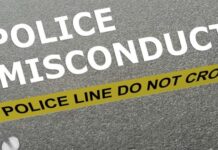Apple Inc. (NASDAQ:AAPL) will likely invoke its right for the protection of free speech under the First Amendment of the U.S. Constitution and use it as a primary legal argument to stop the court order to help unlock the iPhone 5C owned by one of the shooters in San Bernardino California, according to Reuters based on the opinion of lawyers expert on the subject.
The U.S. District Court of Los Angeles ordered Apple to provide “reasonable technical assistance” to the Federal Bureau of Investigation (FBI) in its investigation of the San Bernardino case.
The iPhone maker rejected the court order citing the reason that the request of the FBI to create a backdoor or master key to the iPhone to circumvent important security features was dangerous.
Apple CEO Tim Cook emphasized that “it would be wrong for the government to force us to build a backdoor into our products. We fear that this demand would undermine the very freedom and liberty our government is meant to protect.”
Other major technology companies including Alphabet (NASDAQ:GOOG) (NASDAQ:GOOGL)’s Google, Facebook (NASDAQ: FB), and Twitter (NYSE:TWTR) supported Apple’s fight against the FBI proposing an unprecedented use of the All Writs Act of 1789 to justify an expansion of its authority.
Apple has until Feb. 26 to respond to the court order
A person familiar with the situation told Reuters that Apple was given three additional days to respond to the court order. The deadline will be on February 26.
The iPhone maker hired two prominent, free speech lawyers namely Theodore Olson and Theodore Boutrous to challenge the FBI’s demand, according to court documents. Atty. Olson won the political-speech case, Citizens United v. Federal Election Commission in 2010. Atty. Boutrous frequently represents media organizations.
Riana Pfefferkorn, a cryptography fellow at Stanford University’s Center for Internet and Society, commented that Apple could argue that requiring it to create a specific computer code is equivalent to an unlawful compelled speech.
Fighting the court order is critical
According to Pfekkerkorn, “I think there is a significant First Amendment concern” because the court order is not just asking the company to turn over information in its possession, but to make a new forensic tool.
On the other hand, Stuart Benjamin, a professor at Duke University, commented, “That is an argument of enormous breadth” citing the reason that Apple needs to demonstrate that the computer code conveys a “substantive message.”
Another law professor, Michael Froomkin of the University of Miami opined that U.S. prosecutors were smart to use the mass shootings as a test case to challenge technology companies’ encryption. According to him, the mass shootings had a huge emotional impact to people and they could also demonstrate the potential danger from armed militants.
Froomkin said, “This is one of the worst set of facts possible for Apple. That’s why the government picked this case.” He added that it is critical for the company to fight the government’s demand to create a backdoor for the iPhone because it could damage the company’s brand. He said, “All these demands make their phones less attractive to users.”









